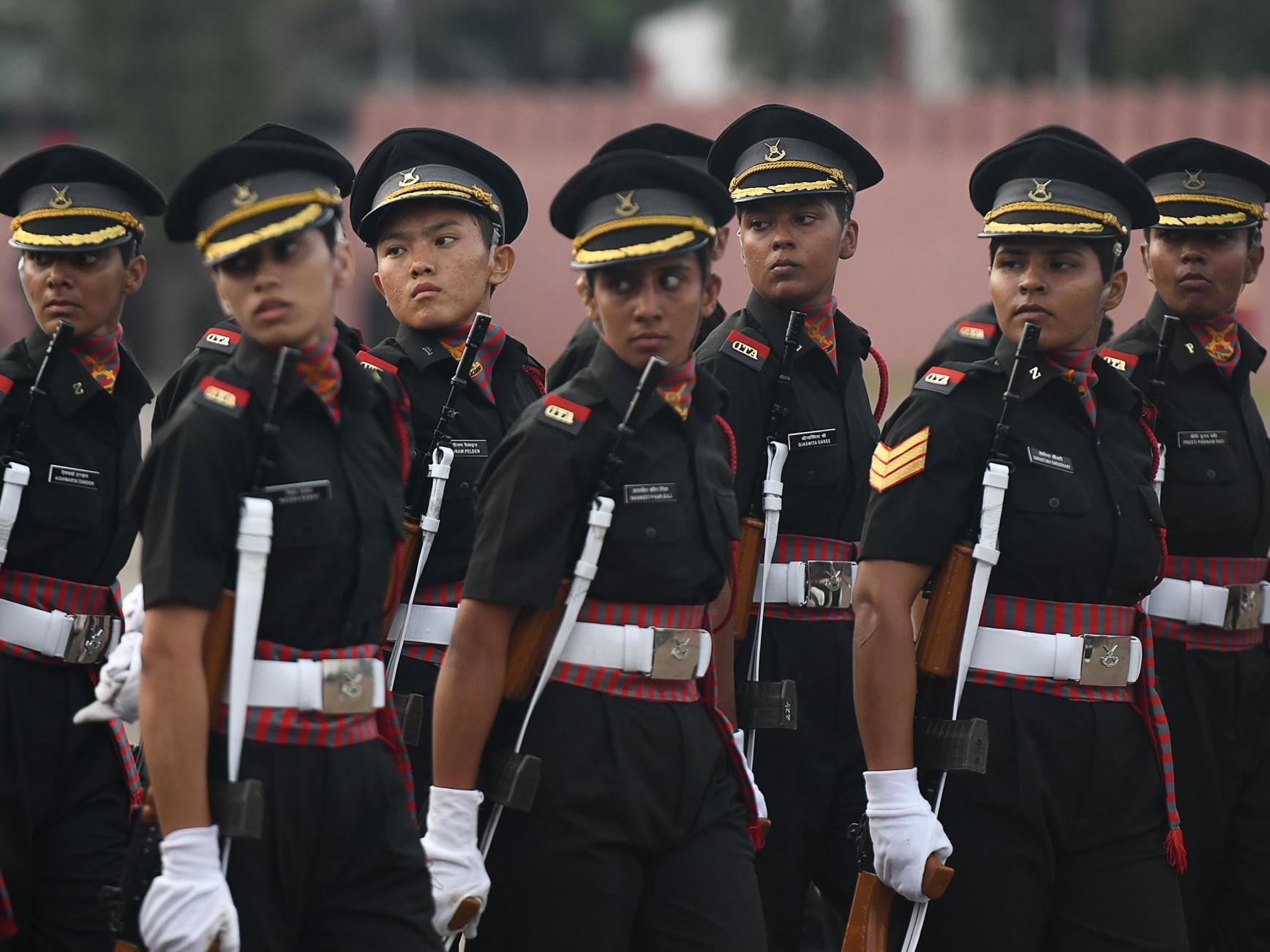Court rules against Indian government's 'disturbing' stance that men in army can't take orders from women
Modi administration claimed soldiers not 'mentally schooled to accept women officers in command'

Your support helps us to tell the story
From reproductive rights to climate change to Big Tech, The Independent is on the ground when the story is developing. Whether it's investigating the financials of Elon Musk's pro-Trump PAC or producing our latest documentary, 'The A Word', which shines a light on the American women fighting for reproductive rights, we know how important it is to parse out the facts from the messaging.
At such a critical moment in US history, we need reporters on the ground. Your donation allows us to keep sending journalists to speak to both sides of the story.
The Independent is trusted by Americans across the entire political spectrum. And unlike many other quality news outlets, we choose not to lock Americans out of our reporting and analysis with paywalls. We believe quality journalism should be available to everyone, paid for by those who can afford it.
Your support makes all the difference.India's top court has ruled that women can serve as army commanders, dismissing the government's stance that male soldiers were not ready to accept orders from female officers as “disturbing”.
The Supreme Court also ordered the government to extend permanent service – which has only been applicable to men so far – to all women officers, signalling a move towards gender parity in the traditionally male bastion.
With this, women will get the same opportunities and benefits as their male colleagues, including ranks, promotions and pensions, and be allowed to serve longer tenures.
Currently women are inducted through a short service commission that lets them work for up to 14 years, and only allowed permanent commission in the army's legal and educational wings.
“To cast aspersion on their abilities on the ground of gender is an affront not only to their dignity as women but to the dignity of the members of the Indian Army,” judges said in their ruling.
Last week the government opposed women being appointed to top roles such as colonels and brigadiers, saying most soldiers were men from rural backgrounds who were not “mentally schooled to accept women officers in command”.
The government also argued that men and women officers were physically different and could not be treated equally.
The top court rebuked the government, describing its views as “disturbing” and urged “the need for change in mindsets to bring about true equality in the army”.
It, however, did not rule on deploying women in combat roles, saying a competent authority needed to decide.
India, with one of the largest armies in the world, has long resisted including women in combat roles, citing concerns over women's vulnerability if captured and over their physical and mental ability to cope with frontline deployments.
India's air force and navy offer permanent commission to women as well as select combat roles.
Most countries employ women in various roles in their armed forces but only a handful, including the United Kingdom, Australia, Germany, Israel and the United States, allow them to take on combat roles.
India began recruiting women to non-medical positions in the armed forces in 1992, yet they make up about 4 per cent of the army's more than one million personnel, according to latest data.
Aishwarya Bhati, a lawyer who represented female officers at court, lauded Monday's judgment as one that would remove discrimination and boost women's role in the army.
“They [judges] have completely negated all the farcical stands raised by the army to deny women equal opportunities,” she told the Thomson Reuters Foundation.
“These battles are watershed moments not just for women in the Indian army, but for women across the world.”
Reuters
Join our commenting forum
Join thought-provoking conversations, follow other Independent readers and see their replies
Comments